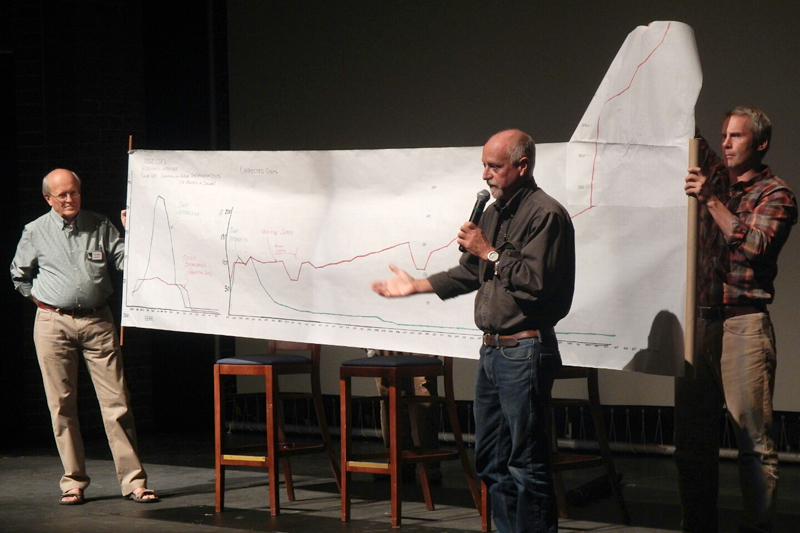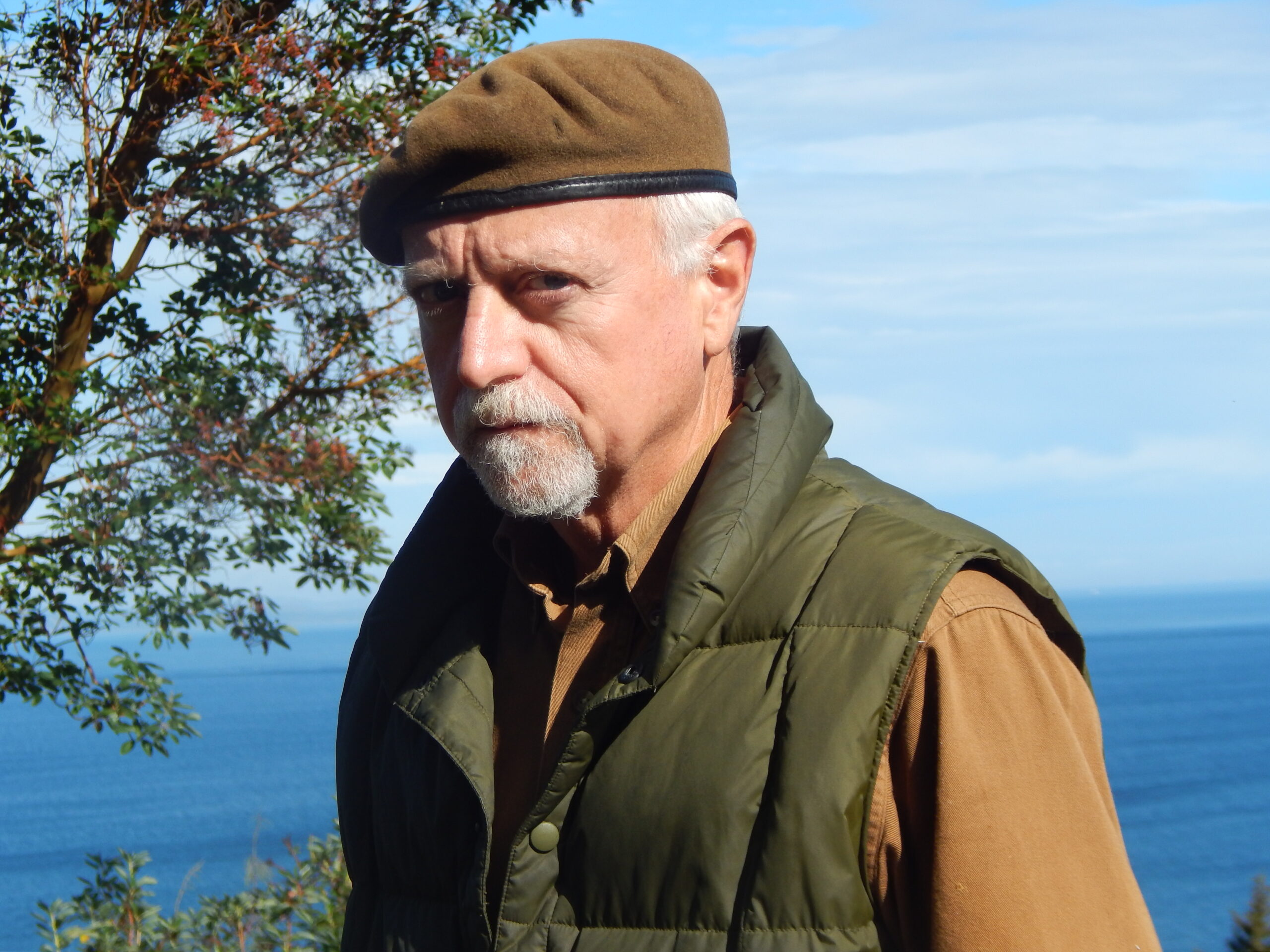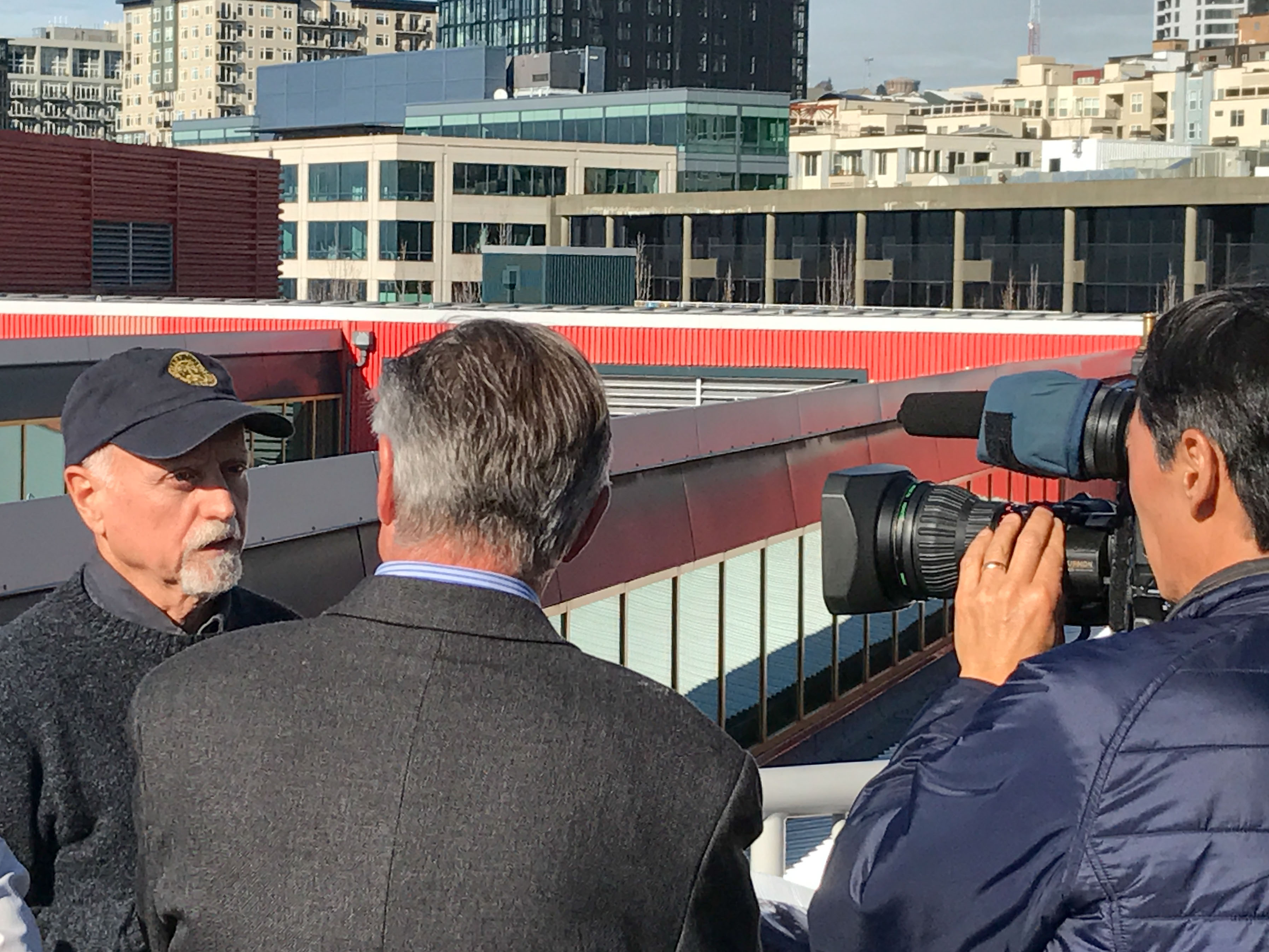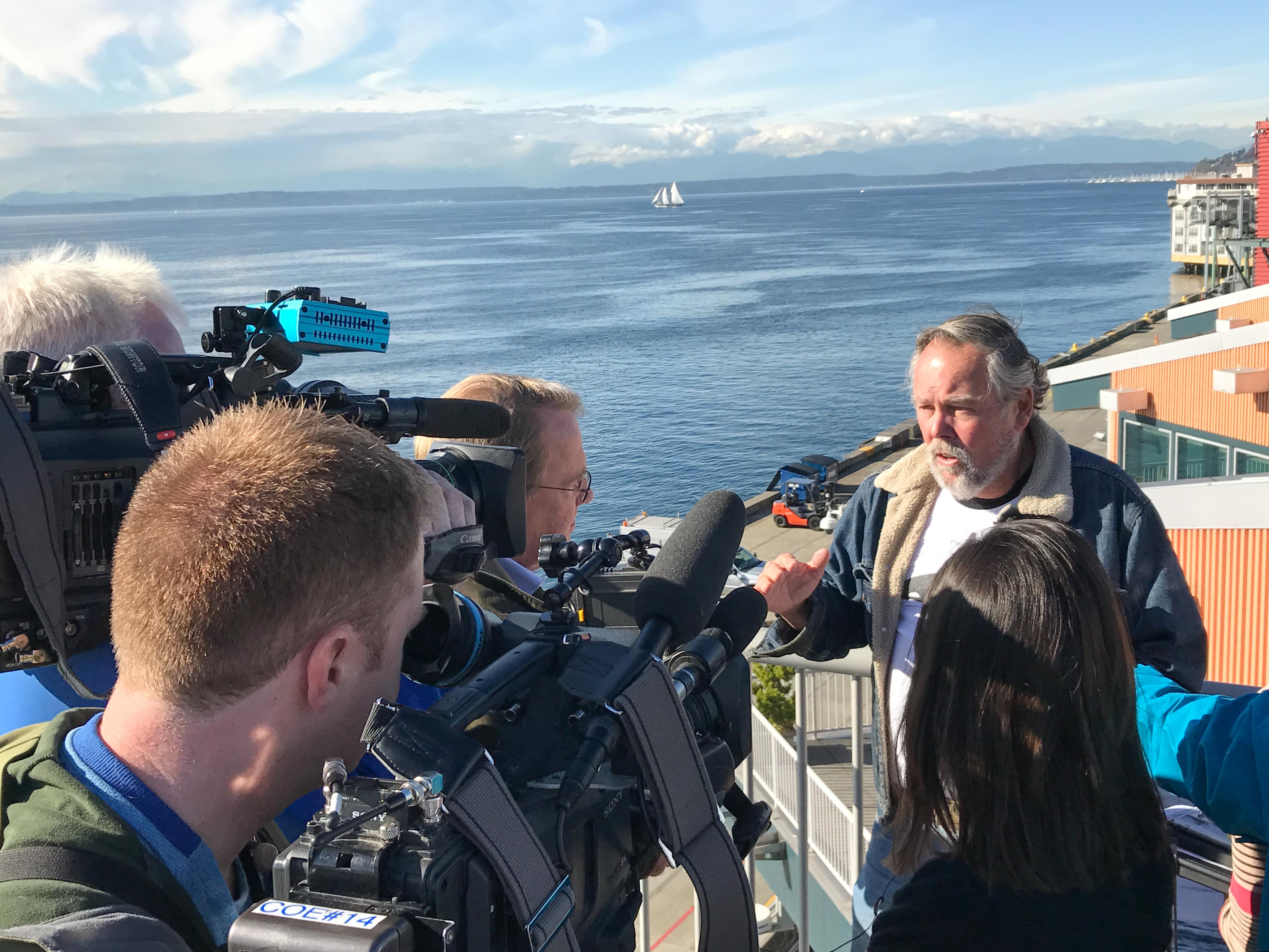Paul J. Pickett – Interim Chair
Paul’s career in water resources engineering spans over four decades. He holds a Bachelor of Science in Renewable Natural Resources and a Masters of Engineering in Environmental Civil Engineering, both from the University of California at Davis. From 1988 until he retired in 2019, he worked for the Washington Department of Ecology as an environmental engineer, focusing on water quality, hydrology, watershed functions, and climate change.
In addition, he was a two-term elected Commissioner for the Thurston Public Utility District (a regional water utility); he taught water management and climate change at The Evergreen State College; served as a Supervisor for the Thurston Conservation District, and he’s had his writing published in a variety of magazines and news outlets.
Since retirement, he’s worked part-time as a consultant, serving as the Squaxin Island Tribe’s representative for Ecology’s Streamflow Restoration program, revising water quality standards for the Chehalis Tribe, and providing reviews of reports on water resources issues for advocacy groups, including Columbia Riverkeepers.
Part of his professional work has included researching water quality issues in the Columbia River, Snake River, and other tributaries. He’s worked closely with Tribes and federal agencies, and has seen close up how the dams impact the life cycles of salmon through supersaturated dissolved gas, low dissolved oxygen, and high temperatures – all potentially lethal to salmon. As a water resource professional, he’s studied the impacts of dams and the social, environmental, and economic issues surrounding their life cycle. It’s clear to him that the Snake River dams are increasingly obsolete. It’s time for federal agencies to make a commitment and begin the planning for their removal.
Paul lives with his wife in Port Angeles, near his grandkids, about whose future he cares dearly.
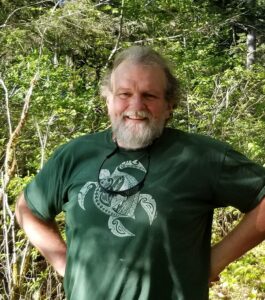
Pete Mehl – Treasurer
Pete Mehl is a retired Navy P-3C Orion pilot with 22 years of active duty service. He has served in a number of demanding positions while deploying throughout the world. His responsibilities have included: Patrol Squadron 46 Aviation Maintenance Officer where he led 210 personnel in the maintenance and upkeep of 9 multi-million dollar aircraft; Fleet Forces Command Fleet Anti-Terrorism Training Officer with the responsibility of developing resourcing, budgets and manpower strategies for Navy-wide Anti-Terrorism programs; USS ENTERPRISE (CVN-65) Occupational Safety and Health Officer where he managed 14 command-wide programs to create a culture of safety and environmental stewardship onboard a nuclear powered aircraft carrier; Naval Air Station Whidbey Island Operations Officer where he led 290 military and civilian personnel to provide Air Traffic Control, air terminal, aircraft range scheduling, facilities support, Emergency Operations and Search and Rescue (SAR) capabilities; and Naval Air Station Executive Officer with the responsibility for the effective management and leadership of over 450 military and civilian personnel supporting the day-to-day operations of a Naval Air Station with a 10,000 employee customer-base. He conducted annual performance appraisals, oversaw hiring and terminations, discipline and employee relations.
Pete’s personal decorations include the Meritorious Service Medal, Navy Commendation Medal with Combat “V” and the Navy Achievement Medal. Following his military career, Pete spent 4 years in the aerospace composite manufacturing industry as a procurement manager and executive steering team member for a tier 2 aviation supplier.
He currently works as the Outside Sales Manager for Harbinger Winery in Port Angeles, WA. An avid outdoorsman and fiscal conservative, after reading and reviewing the Lower Snake Feasibility Study, Pete is convinced that breaching the Lower Snake Dams is the right choice for the taxpayers and the environment.
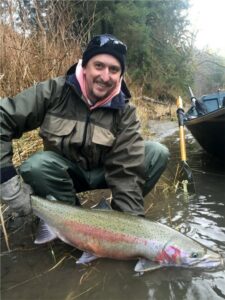
Kate Comer – Secretary
Kate is Associate Professor of English and Director of Composition at Portland State University, where she teaches rhetorical theory and writing pedagogy. Her scholarship engages strategic storytelling and digital activism, and she has been involved in several public-academic projects and community campaigns. An avid nature lover, she was formerly on the board of Pelican Harbor Seabird Station in Miami, FL, and volunteers weekly at Portland Audubon Wildlife Care Center.
Kate wanted to be a marine biologist long before becoming an academic and now combines those passions through research and advocacy. Her study of the Blackfish effect and its connections to orca conservation brought her to Superpod in 2018, where she was fortunate to interview both Ken Balcomb and Jim Waddell. Their expertise and evidence–that the Southern Residents are being starved to extinction, and that breaching the Lower Snake River Dams is the only likely way to recover salmon and SRKW populations–persuaded her to become involved. She contributed to the DamStupid website and campaign during and after Tahlequah’s tour of grief and continues to study the dynamics of these debates in news and social media.
In July 2023, Jim told her, “we’re closer than we’ve ever been [to breaching], and if we miss this chance, it will be another 20 years before we get this close again.” Thanks to her sabbatical, she was able to team up with the dream team of Haze Sommer, Kaarina Makowski, and Diane Fraleigh to develop BidenBreachNow.com and related social media efforts. This experience has affirmed her commitment to breaching the LSRD, and she is eager to work with the DamSense board to educate and energize the public to that end.
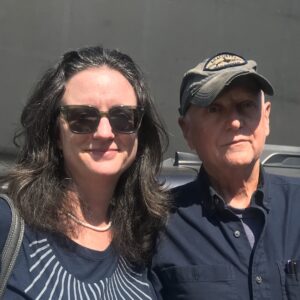
Chris Pinney
Chris has a Bachelor’s of Science Degree in Zoology and a Master’s of Science Degree in Biology with an emphasis in Aquatic Ecology from Northern Arizona University. For 28 years Chris was a fisheries biologist employed by the Walla Walla District, U.S. Army Corps of Engineers (Corps). Chris assisted with fish passage facilities research, operations, statistical modeling, and ESA consultation for the operation of the lower Snake and lower Columbia River dams, in the context of individual lock and dam projects and their reservoirs, and the Federal Columbia River Power System evaluation for aquatic resources. Chris represented the Northwestern Division of the U.S. Army Corps of Engineers on various National Marine Fisheries Services (NMFS) chaired Regional Forum technical working groups, including the Plan for Testing and Analyzing Hypotheses (PATH), and as Co-Chairperson shared with a representative from the Canadian Department of Fisheries and Oceans for the Biological Effects and Research Subgroup of the Transboundary Gas Group.
Jane Mergler
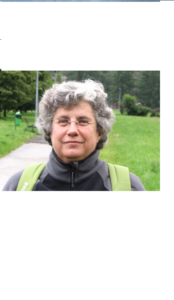
In Memory Of:
Jim Waddell – Founder (2018 – Feb. 2024, deceased)
Jim Waddell is a Civil Engineer who is retired from a 35 year public service career with the U.S. Army Corps of Engineers. In 2018 he was elected as a Public Utility Commissioner for the state of Washington. For over twenty years of his career in the Corps he was a leader in developing the policies and practice of Sustainable Development within multiple federal agencies such as the Environmental Protection Agency and the National Science Foundation. His work with the NSF and then as the Senior Policy Analyst for the Environment in the White House Office of Science and Technology Policy was largely focused on climate change policy, budgets, and research integration. He was the first in the Federal Government to identify and integrate all the global warming research programs allowing scientific information to better inform National and International policies. His efforts in 1989 helped establish and organize the US Global Change Research Program.
In 1999, Mr. Waddell became the Deputy District Engineer for Programs at the Walla Walla District at the time the Lower Snake Feasibility Study was into its 5th year of development. This $33 million dollar study was the most comprehensive effort ever undertaken by any government to determine the feasibility of breaching dams to restore salmon runs. His recommendation to breach the dams based on the study and input from over 100,000 commenters who were largely in favor of breaching, was ignored.
After his retirement from the Corps in 2013 he has commenced a reevaluation of the study, and his work shows that the magnitude of cost errors in the report clearly supports the conclusion that breaching the four Lower Snake Dams is not only a sound biological choice but will prevent the waste of millions of tax payer dollars and loss of economic benefits to the nation and region.
Ken Balcomb – Former Board Member (2018 – Dec. 2022, deceased)
Ken obtained his Bachelor’s degree in Zoology in 1963 from UC Davis and soon after was employed by the US government as Field Biologist GS5-7, first in Eastern Pacific large whale research and later in Central Pacific marine bird research. During the Vietnam era, he was a commissioned US Navy pilot and oceanographic specialist.
He then did his graduate studies at UC Santa Cruz with Dr. Ken Norris, the world-famous marine mammal biologist. While a graduate student, Ken conducted Humpback whale research in the North Atlantic with colleague Dr. Steve Katona and taught marine biology aboard r/v Regina Maris for Dr. George Nichols of ORES and Harvard University. Ken is a pioneer in photo-identification of cetaceans and is the founder of Orca Survey (1976), a study of Pacific Northwest Southern Resident killer whales (orcas).
He founded the non-profit Center for Whale Research in 1985 and is its volunteer Executive Director and NWFSC contract Principal Investigator of Orca Survey. Ken is a Charter Member of the Society for Marine Mammalogy.

